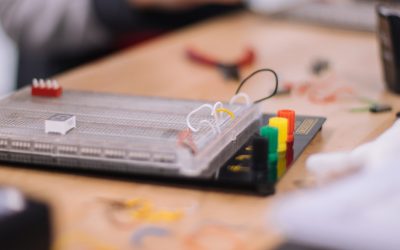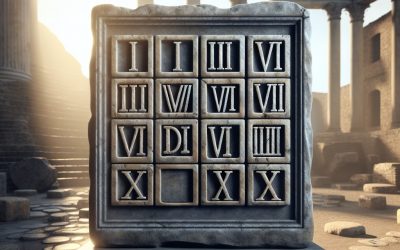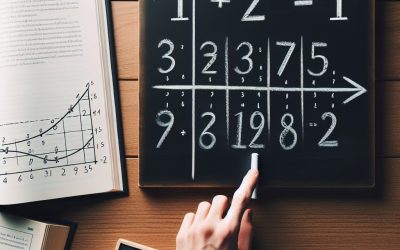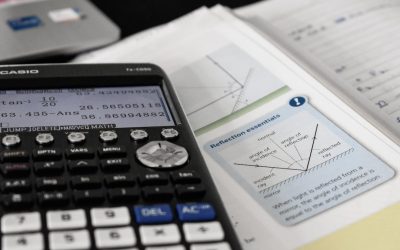Multiplication
Multiplication is a fundamental mathematical operation that involves combining two or more numbers to find their total value. It is often represented by the symbol “x” or “*”, and the result of a multiplication operation is called the product....
Written Adding and Subtracting
Written adding and subtracting are fundamental skills in mathematics that allow us to perform calculations with numbers. These skills involve the ability to add or subtract two or more numbers using a written method, such as using columns or lines. Learning these...
Rounding Numbers
Rounding numbers is a fundamental mathematical concept that is used in everyday life. It involves approximating a number to a certain degree of accuracy. This is done by replacing the number with another number that is easier to work with or understand. Rounding...
Decimals
Decimals are a fundamental part of mathematics and play a crucial role in our everyday lives. They are a way of representing numbers that fall between whole numbers, allowing for more precise measurements and calculations. In simple terms, decimals are numbers that...
Roman Numerals
Roman numerals are a numerical system that originated in ancient Rome and were used throughout the Roman Empire. The system is based on a combination of letters from the Latin alphabet to represent numbers. The use of Roman numerals dates back to around the 7th...
Negative Numbers
Negative numbers are a fundamental concept in mathematics that represent values less than zero. They are denoted by a minus sign (-) placed before the number. The concept of negative numbers has been around for thousands of years and has evolved over time. The...
Ordering Numbers
Understanding how to order numbers is a fundamental skill in mathematics. Whether it’s arranging a list of numbers in ascending or descending order, comparing numbers using greater than and less than symbols, or ordering fractions and decimals, the ability to...
Key Stage 2 Maths for Ages 7 to 11
Key Stage 2 is a crucial stage in a child’s education, as it is the period when they transition from the foundational skills learned in Key Stage 1 to more complex concepts and topics. In the United Kingdom, Key Stage 2 covers children aged 7 to 11 years old,...
Mastering Trigonometry: Navigating the Unit Circle with Confidence
Trigonometry is a branch of mathematics that deals with the relationships between the angles and sides of triangles. It is a fundamental concept in mathematics and has numerous applications in various fields such as physics, engineering, and architecture. In this blog...
Mastering Trigonometric Identities: Unlocking the Secrets of Sine, Cosine, and Tangent
Trigonometric identities are mathematical equations that relate the angles and sides of a right triangle. These identities are fundamental in trigonometry and play a crucial role in various branches of mathematics and science. They provide a way to simplify complex...
Unlocking the Power of Trigonometry: Understanding Sine, Cosine, and Tangent
Trigonometry is a branch of mathematics that deals with the relationships between the angles and sides of triangles. It is derived from the Greek words “trigonon” meaning triangle and “metron” meaning measure. Trigonometry has been studied for...
Unlocking the Secrets of Trigonometry: How to Master Trig and Excel in Math
Trigonometry is a branch of mathematics that deals with the relationships between the angles and sides of triangles. It is derived from the Greek words “trigonon” meaning triangle and “metron” meaning measure. Trigonometry is an important field...














